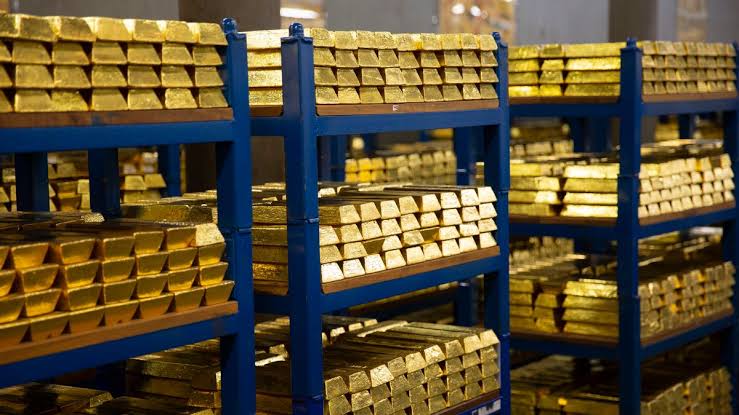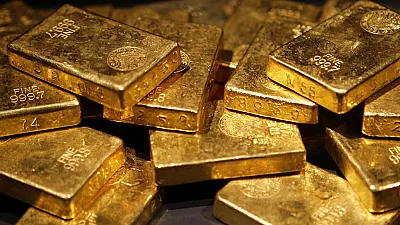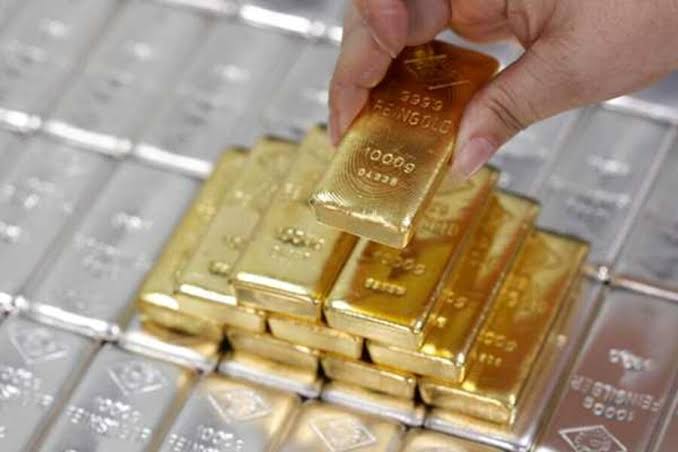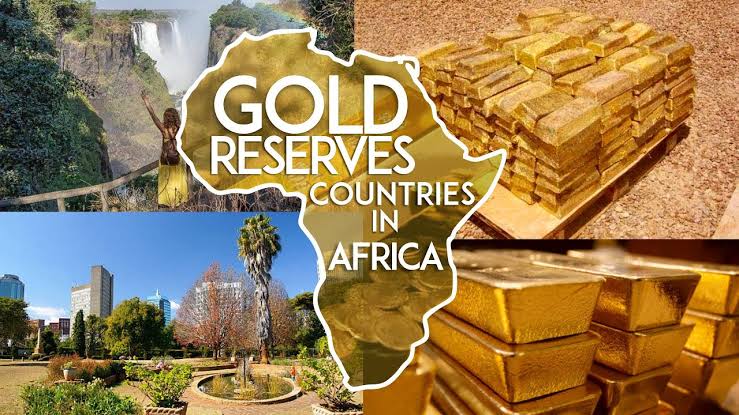Africa is renowned for its rich mineral resources, and gold stands out as one of the most significant and valuable. The continent’s gold reserves have played a crucial role in shaping the economies of several African countries. In this article, we delve into the top five African countries with the most impressive gold reserves, examining their mining industries, production capacities, and economic impact.
1. South Africa

Overview
South Africa is often synonymous with gold mining. The country has a long history of gold production, dating back to the late 19th century when gold was discovered in the Witwatersrand Basin. This discovery triggered one of the world’s largest gold rushes and established South Africa as a leading gold producer.
Gold Reserves and Production
South Africa’s gold reserves are among the largest in the world. The country boasts some of the deepest and most productive gold mines globally, including the Mponeng and TauTona mines. Despite a decline in production over recent years, South Africa remains a significant player in the global gold market. In 2021, South Africa produced approximately 90 metric tons of gold.
Economic Impact
The gold mining industry has been a critical pillar of South Africa’s economy, contributing significantly to employment and GDP. However, the industry faces challenges such as rising production costs, labor strikes, and stringent regulatory environments. Nonetheless, South Africa’s gold reserves continue to attract investment and drive economic activities.
2. Ghana

Overview
Ghana, known as the “Gold Coast” during colonial times, has a long-standing history of gold mining. The West African nation is currently the largest gold producer on the continent and ranks among the top producers worldwide.
Gold Reserves and Production
Ghana’s gold reserves are substantial, and the country has a well-developed mining industry. The Ashanti Belt, one of the world’s most prolific gold belts, hosts several large-scale mining operations. Major gold mining companies, including Newmont, Gold Fields, and AngloGold Ashanti, operate in Ghana. In 2021, Ghana produced approximately 130 metric tons of gold, maintaining its position as Africa’s top producer.
Economic Impact
Gold mining is a cornerstone of Ghana’s economy, contributing significantly to government revenues, foreign exchange earnings, and employment. The industry supports numerous local businesses and communities, providing vital infrastructure and services. Ghana’s government continues to promote the mining sector, implementing policies to attract investment and ensure sustainable development.
Also, read; Hakeem Olajuwon: Nigeria’s Legendary NBA Hall of Fame Basketball Player
3. Sudan

Overview
Sudan has emerged as a significant player in the African gold mining sector in recent years. The country’s vast and largely untapped mineral resources have attracted interest from local and international mining companies.
Gold Reserves and Production
Sudan’s gold reserves are considerable, with major deposits located in the northeastern part of the country. The Hassai Gold Mine, operated by the Sudanese Mining Company, is one of the country’s largest gold mines. In 2021, Sudan produced approximately 93 metric tons of gold, making it one of the leading gold producers in Africa.
Economic Impact
Gold mining is a critical component of Sudan’s economy, providing much-needed revenue and employment opportunities. The government has implemented reforms to attract foreign investment and develop the mining sector. However, the industry faces challenges such as political instability, regulatory issues, and environmental concerns. Despite these hurdles, Sudan’s gold reserves offer significant potential for economic growth.
4. Mali

Overview
Mali is another West African country with a rich history of gold mining. The country is the third-largest gold producer in Africa and has a well-established mining industry.
Gold Reserves and Production
Mali’s gold reserves are substantial, with significant deposits located in the southern and western regions. Major gold mines include the Sadiola, Morila, and Loulo-Gounkoto complexes. In 2021, Mali produced approximately 61 metric tons of gold, maintaining its position as one of Africa’s top producers.
Economic Impact
Gold mining is a vital sector of Mali’s economy, contributing significantly to government revenues and export earnings. The industry provides employment opportunities and supports local communities through infrastructure development and social programs. Mali’s government continues to promote the mining sector, implementing policies to attract investment and ensure sustainable development.
5. Tanzania
Overview
Tanzania has emerged as a significant player in the African gold mining industry. The country’s rich mineral resources have attracted interest from local and international mining companies.
Gold Reserves and Production
Tanzania’s gold reserves are considerable, with major deposits located in the Lake Victoria Goldfields. The North Mara, Bulyanhulu, and Buzwagi mines are among the largest gold mines in the country. In 2021, Tanzania produced approximately 48 metric tons of gold, making it one of the leading gold producers in Africa.
Economic Impact
Gold mining is a cornerstone of Tanzania’s economy, contributing significantly to government revenues, foreign exchange earnings, and employment. The industry supports numerous local businesses and communities, providing vital infrastructure and services. Tanzania’s government continues to promote the mining sector, implementing policies to attract investment and ensure sustainable development.
Conclusion
Africa’s gold reserves are a significant asset, driving economic growth and development in several countries. South Africa, Ghana, Sudan, Mali, and Tanzania stand out as the top five African countries with the most impressive gold reserves. These nations have well-established mining industries that contribute significantly to their economies, providing employment, government revenues, and foreign exchange earnings. As the global demand for gold cocontinues to rise, these countries are poised to play a crucial role in the international gold market.

